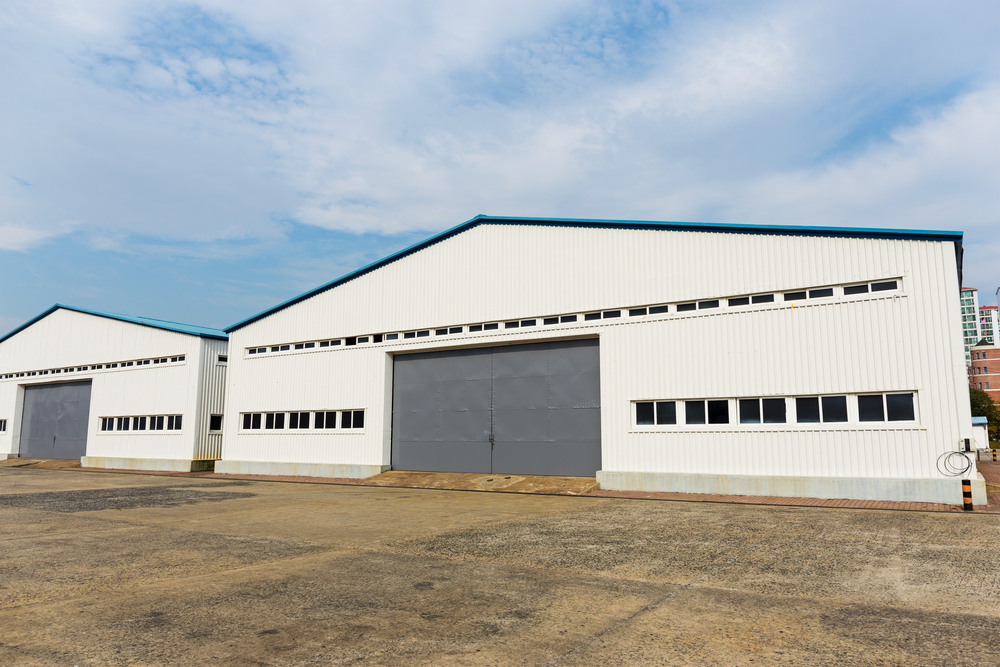When selecting warehouse space, you have a number of factors to consider, such as whether to lease or buy. Envision a space that can give your business what it needs now and in the future. To ensure a smooth transition to your new facility, take ample time to prepare for the move.
In 2018, new direct-to-consumer cookware brand Great Jones was in a rush to launch in time for the holidays. Being first-time entrepreneurs, co-founders Maddy Moelis and Sierra Tishgart kept it small by launching a five-piece line, but the two still needed to settle on the best way to get their products to consumers.
That's when Moelis happened upon Flexe, a Seattle-based warehouse firm that offers third-party logistics to smaller brands and businesses. Flexe immediately outfitted Great Jones with warehouse space and handled the startup's e-commerce orders to get it up and running in time for the holidays.
While Great Jones paid a decent financial premium for this short-term "warehouse as a service" space solution, the long-term savings were significant. Great Jones saved upward of 15% on shipping and fulfillment costs and gained the flexibility to accommodate short-term growth.
Great Jones's launch shows that while commercial real estate often entails long-term fixed obligations, that doesn't have to be the case. When searching for a warehouse for your business, make flexibility and scalability your top priorities. Otherwise, you could wake up one morning on the hook for a building that no longer works for you – and that's not a great scenario for a growing business.
Leasing vs. Purchasing a Warehouse Property
As with most debates, there are pros and cons for both leasing and buying warehouse property.
Leasing a building generally requires less upfront capital than buying one. After all, purchasing a building usually necessitates a hefty down payment, some costs toward building renovations and immediate mortgage payments. With a lease, however, there is no down payment, you can negotiate free months of rent, and landlords typically field requests to pay for a significant amount of your tenant improvements – all of which means you can secure a warehouse space somewhat inexpensively.
Leasing also provides the option of "graduating" the rent as needs change. This option allows for built-in fixed takedowns or certain stipulated provisions to grow into a space, something mortgages don't afford you. When you own a building, all its monthly expenditures fall on you, and you can't expand unless you buy, build, or lease additional space. Honestly, wouldn't that money be better used to grow the business?
Leasing also has some downsides. Leasing doesn't come with the tax benefits of owning a property, which can be significant. You also are not building equity in anything. Once your lease expires, you have to lease or purchase another property, and you get zero credit for all the lease payments you have made faithfully for years.
If you're in a stable industry with little volatility, you probably have a pretty good idea of what your business will look like in five to 10 years. If you also have the capital to deploy, owning your own warehouse could make a lot of sense. However, if you're capital-constrained and unsure of what your business will look like in a year (much less five years), buying a facility could leave you in a bind.
I've seen plenty of situations where the market takes an unexpected downturn, and a company can't sell its facility and is driven into bankruptcy. At least with a lease, you have a predetermined expiration date. Simply put, every company has different needs, and there is no one right solution. Careful planning is critical to ensure you make the right decision for your organization.
A (Ware)house to Call Home
Here are a few questions you can ask yourself as you consider which option is right for you:
- Are you able to clearly envision your long-term space needs?
- Are you anticipating significant growth and potential business diversification that could require a different amount or kind of space?
- Is the real estate marketplace in an upturn or downturn?
- Is your industry stable?
- Do you have excess capital, or would a lease free up funds that you could use to reinvest in your company and drive innovation or expansion?
Once you've answered these questions and decided whether to lease or purchase, looking for a new warehouse space remains a daunting task. You've got a lot of moving pieces to consider when trying to find a location that suits both your current and future requirements. Look to the following recommendations to help you identify the right facility for your needs.
1. Organize a Visioning Session
A visioning session is just what it sounds like – a closed-door planning exercise to help you figure out exactly what you will need in the new space. With every new client, we schedule one of these for 90 minutes to hash out short-, mid-, and long-term business and real estate needs. As part of this session, we ask our clients to share their best- and worst-case scenarios in order to build a strategy for space utilization. The goal here is not only to establish the needs for today, but also to frame them out for tomorrow.
When organizing a visioning session, it's often best to start with some basic questions, such as the following:
- What are your storage requirements?
- What sorts of equipment will be used in the facility?
- What kind of ceiling height do you need?
- Do you need a yard?
- How many dock doors do you require?
- Will the space be able to support your technological needs?
As you explore your options, expand the discussion. Consider the potential for future expansion, your ability to obtain capital and where you can best to invest this capital.
2. Prepare Well in Advance
Many businesses make a habit of leaving certain operational activities to the last minute. Securing warehouse space shouldn't be one of them. In fact, we typically suggest 18 to 24 months of preparation before occupying a new facility. This isn't to say you can't speed up the process, but the move won't go as smoothly as it could had you planned accordingly. Besides, the chances of making a mistake increase exponentially when you are pressed for time.
Start preparations early by working with staff on a definitive timeline for securing and transitioning to the new space. Confirm the scope and timing of potential renovations and gather as much information as possible on the logistics of moving assets, purchasing new equipment and installing all necessary telecommunications. You may also want to designate a point person on the team to oversee the transition. That way, your downtime will more likely be a span of weeks instead of months.
3. Look into Exclusive Tenant Advocacy
Having a tenant broker that exclusively represents your firm without allegiances to landlords or developers will help you significantly with this process. As an example, our firm typically saves clients 15% to 25% in both cost and risk over what they could achieve on their own or utilizing a traditional broker.
Additionally, if significant construction will be needed to prepare the warehouse for your occupancy, make sure you hire a tenant project manager who works for you instead of for the landlord or developer on the build-out of the space to ensure the project stays on time and on budget.
Securing warehouse space shouldn't be an afterthought. Shipping and fulfillment are both critical to a company's success. If you can anticipate your future business needs, plan carefully and give yourself enough time to arrive at a reasonable forecast, the path will become that much clearer. You owe it to your business.
Also featured on Business.com







